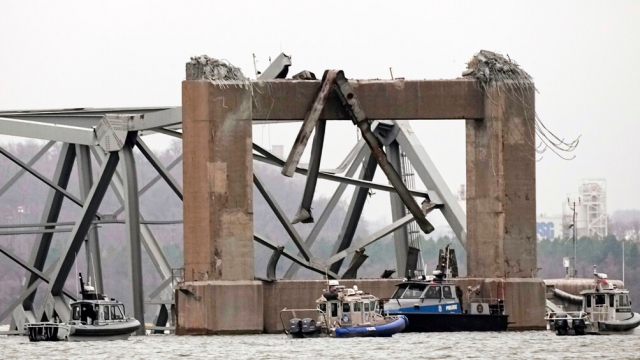The collapse of the Francis Scott Key Bridge in Baltimore — and the necessary closure of the city's main port — is expected to delay shipping activity that reaches much of the U.S.
Some ships that would have gone to Baltimore are now rerouting to other ports, which could cause delays of weeks or more. Some vessels are now waiting near Annapolis or near Norfolk, Virginia, until they get new destinations elsewhere on the Eastern Seaboard.
Industry analysts expect reshuffling cargo may add short waits or minor extra expense to shipping costs. But other East Coast ports are expected to take up much of the traffic that would have moved through Baltimore, which means a prolonged slowdown in shipping to and from the U.S. is unlikely.
SEE MORE: Workers recover bodies of 2 victims from Baltimore bridge collapse
Brad McCarthy owns Maryland Blue Crab Shack. it's located only a few miles from the bridge collapse.
Currently, he gets his fresh catch from the southern part of the state, meaning deliveries come over the Key Bridge. Until things are cleared up and it's rebuilt, he says he'll have to incur extra charges for the longer routes.
"I definitely feel like it's going to be a traffic overload,” McCarthy said. “I would think 30% of the traffic that crosses the bay crosses on that bridge so then now everything is going to get funneled through the tunnels."
William Doyle is the CEO of Dredging Contractors of America, the trade association working to coordinate the clean-up. He says more than 30 companies are supplying equipment to clear the 50-foot-deep channel. Until that happens, ships are being rerouted to other ports along the Mid-Atlantic coast.
"Jobs will continue because it's always moving. Commerce is always moving,” Doyle said. “There's always backups or materials sitting at the port that will move. This will be cleaned up quicker than most people can imagine."
The port’s location on the East Coast puts it within easy driving distance of much of the U.S. population. More than 11 million tons of cargo moved through its docks last year, the state of Maryland said.
The closure could affect jobs for more than 150,000 people who work in and around the port, and could cost the economy as a whole about $15 million per day.
Delays may have a particular effect on rolling cargo like cars. Baltimore’s port sees more vehicle shipping than any other terminal in the U.S.
“For everybody who is buying cars, for everybody who is [buying] farm equipment, we’re the largest port in the country that does that," Maryland Gov. Wes Moore said. “So this is not just impacting Maryland.”
Other major goods that go through the port include wood, steel, furniture and 20% of coal exported from the U.S.
Dozens of shipping and cruise line concerns use the port. Carnival Cruise Line warned on Wednesday that losing access to the port could cost it millions of dollars this year.
SEE MORE: Carnival says Baltimore bridge collapse could cost them $10 million
At a press conference on Wednesday, officials from Maryland and from the U.S. Coast Guard reiterated that they can’t be sure at this point how quickly operations will resume at the port. Debris from the collapsed Francis Scott Key Bridge will need to be cleared to make the Patapsco River safe to navigate again.
Trending stories at Scrippsnews.com



